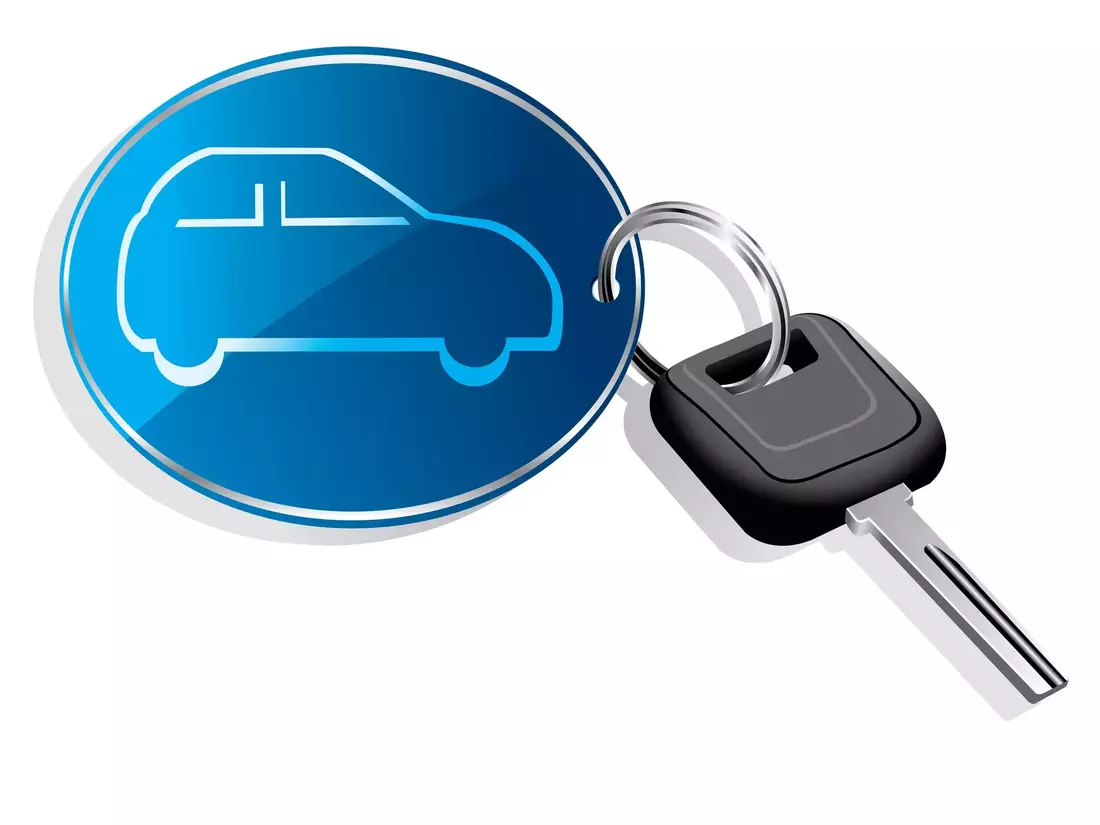Car Finance PCP Claims
- A complete overview of mis-sold PCP
- How and why you can make PCP claims
- The claiming process
Cars and vans bought on personal contract purchase (PCP) or hire purchase (HP) are subject to various terms and conditions, which may not always be too clear. Before signing the paperwork, was everything fully explained to you? Were you aware of how much commission you were paying? If not, PCP claims can be made.
This article will explain what PCP claims consist of, as well as why you can claim. From common criteria that makes you eligible to who can claim, it will all be detailed here. Finally, this article will explain how compensation is calculated and how the claims process works.
Ready to make a claim for mis-sold car finance? Use our eligibility checker to see if you qualify. It only takes a minute.

What's On This Page?
Click the links below and head straight to a specific section of the article.
What Are Mis-sold PCP Claims?
Whether you were not aware of commission being charged on your car finance or the advice was unclear, poor or even negligent, you can claim compensation. PCP claims are against the dealership for misleading you or not performing their duties sufficiently. If you had a car loan, the Financial Conduct Authority (FCA) can help because of regulations.
As long as your PCP deal was within the last six years, you should be able to make a claim. This is because firms are only legally obligated to retain key documents about finance agreements for six years after it comes to an end.
In 2021, the FCA banned discretionary commission arrangements. This was after an investigation that proved how many dealerships were upping commission on PCP deals without informing the customer. You’re able to make PCP claims based on these hidden commissions, but other instances also qualify.
Ready to know more? Here’s what you should know about PCP claims.
Common Criteria to Claim
Generally, PCP claims come under the following types:
Undisclosed commissions
Pressured sales
No thorough affordability checks
Interest overcharges
Emissions scandal
Undisclosed Commissions

This is, perhaps, the biggest type of claim in terms of awareness right now. Thanks to both the 2021 ruling and the 2024 investigation from the FCA, more people are aware of how they could be entitled to compensation from PCP claims.
Thanks to the 2021 ruling, it became illegal for brokers and car dealers to charge undisclosed commissions with PCP or HP deals. This was a step to protect your rights as a consumer.
As advertised on The Martin Lewis Money Show Live, around 40% of PCP deals featured hidden commissions. This entitles you to make a claim for mis-sold PCP because the dealership demonstrated an unfair relationship by hiding this from you. You must be notified of any and all fees within a transaction.
According to Martin Lewis, PCP claims are likely to be redressed based on undisclosed commissions once the FCA investigation concludes. This is set to finish in September 2024, and thousands of consumers will be waiting for compensation at that point. Your best chance for a successful claim is to get it in as early as you can.
Pressured Sales
Sales people often use pressure tactics in order to secure a deal. They’re often more interested in receiving commission for getting more sales than they are about finding the right deal for the customer. As such, you may have been a victim of high pressure sales tactics, which may be illegal.
You need to be given enough time to process the offer you’ve been given, as well as alternative options. If you’re not fully sold on a deal, the car salesperson shouldn’t make you feel guilty or use time against you to make you sign. PCP claims can be made because of pressure from salespeople.
With these tactics, it’s no wonder that only 2.5% of UK homeowners trust salespeople, according to the latest Eco Quote Today Home Energy Survey.
No Thorough Affordability Checks

Any financial agreement that is made needs to have suitable checks approved before it can be granted. This means not ignoring a customer’s financial situation and ensuring they will not only be able to pay it back but not struggle either.
If you had to borrow more money to pay off existing loans, then this is a form of unaffordable lending. In terms of a financial agreement with a vehicle, PCP claims can overlap with unaffordable lending, making you eligible to claim.
Interest Overcharges
Similar to salespeople being overzealous in their tactics, you may have also been charged a higher amount of interest than you should have. Often, flat rates of interest were conveyed instead of APR to make it look cheaper than it actually was.
The FCA estimates that consumers were charged around £1,100 more in interest charges over the course of a four year finance agreement of £10,000. This was also at the time when discretionary commissions were still permitted. It’s now clear that these situations qualify under PCP claims.
When consumers successfully made PCP claims in the past, any redress has been calculated based on the difference between the interest paid and the lowest rate that was available at the time. For example, someone who was charged 5% interest when a low rate of 2.5% was available would receive compensation based on the 2.5% difference, plus interest.
Emissions Scandal
Car manufacturers have been investigated as to whether they have been tampering with their vehicles in order to hide their true level of emissions. Since the VW dieselgate scandal, many investigations have discovered emissions much higher than legally permitted levels.
The good news is, even if you had a car on a PCP deal, you can still make a diesel emissions claim. PCP claims have been made in the past based on what you thought you were buying as opposed to what you actually got. In other words, you only wanted the car because you thought it had low emissions.

When a finance broker sells you a loan or financial agreement from the bank or lender, they usually receive a fee or some sort of commission for introducing the deal. If you were not informed of this by either the bank, lender or broker, this is known as hidden, secret or undisclosed commission.
Under FCA rules, finance providers or banks must inform you of all fees within any transaction. At the point of sale, the car dealership should inform you of any commission being charged. If this isn’t made clear, it’s considered a form of fraud. This means that both the finance provider and the broker may be liable for PCP claims.
When selling car finance, financial brokers have an obligation to:
Have the customer’s best interests at heart
Remain impartial or neutral with every bank, lender or finance provider
Always disclose any profit made to the customer
Never charge more interest for higher commissions
PCP claims can be made if you believe your lender didn’t follow any of this advice.
Who Can Make PCP Claims?
Even though you can make a claim if your agreement was within the last six years, the timescales are actually a bit more lenient. Technically, PCP claims can be made on any vehicle bought through PCP or HP since 2007, as long as they come under one of the criteria outlined in the previous section.
Additionally, you can make a mis-sold PCP claim for the following:
A new or second hand car bought on finance
A car, van or motorbike
Ongoing financial agreements as well as finished ones
Multiple vehicles
PCP has been immensely popular for a number of years. In fact, it’s been the most prolific way of car purchase. This means that most people may already be eligible for PCP claims. You can see what percentage of new car sales came under finance deals in the interactive graph below.
Mis-sold PCP Compensation Calculator
Every claim is likely to be different, as these are based on varying factors. From how long your finance agreement was in effect, to how much commission was involved, PCP claims can vary widely.
PCP claims average around £3,000, but your situation may only entitle you to £1,600. Equally, it could be much more, depending on how many vehicles you had and how long the agreements were for. You could even make a set of mis-sold car finance claims.

Generally, you’ll need to factor in:
The total amount on loan and how much interest there was
How much you’ve paid off
How old the vehicle is, its condition and value
The length of the loan
The difference in interest between what you paid and what you should have been paying
PCP Claims – Success Story
Fudge-Adams vs Black Horse Limited
The dealer could have charged between 6.35% and 12% interest. Opting to charge 12%, APR was then set at 25.5%, bumping up commission to £881.60. A supplementary £637.25 commission was also paid to the dealer for volume of sales.
The court ruled that the dealer had a duty to provide information, advice or recommendations on an impartial basis, including being transparent about commission. Whilst the customer was informed commission may be charged, no precise details were conveyed.
The customer assumed the dealer would have made money on the sale of the car and not through the finance, so the court decided this demonstrated an unfair relationship through a breach of duty from the dealer. As such, commission was ordered to be returned, along with interest and the difference in rates because of the inflated APR.
PCP Claims Process – What’s Involved
Anyone who offers credit or finance must be regulated by the FCA. This is to ensure that customers receive a fair deal and their rights are protected. Because the FCA is involved, there’s a process involved for PCP claims.
Use a Claims Management Company
The process of making PCP claims can sometimes be lengthy affairs with no resolution in sight. Fortunately, you can make the process easier for yourself by getting someone to do the hard work for you.
Claims management companies have a team of expert legal advisors at their disposal who know the PCP claims process inside and out. They can talk to your lender and receive copies of all your documentation. If you have a genuine case, they will know and pursue your mis-sold PCP claim on your behalf.
Talk to the Lender
Alternatively, you can pursue the claim yourself. You need to give your FCA regulated business a chance to set things right themselves before you complain about them. Speak to your lender about your concerns and see if they offer you a resolution. According to FCA standards, they have eight weeks to provide a final response for PCP claims.
Financial Ombudsman Service
If your lender doesn’t respond within eight weeks or does not offer a satisfactory resolution, you can start to complain through the Financial Ombudsman Service (FOS). PCP claims require as much evidence as possible to support your case, including a copy of the agreement and any other corresponding documentation.
It can take the FOS up to three months for your case to be investigated. Depending on the severity of the case, it could potentially be an even longer wait. If you don’t have the time on your hands to wait, you may be better off using a claims management company, who can pursue PCP claims quickly and effectively.
What Is ‘No Win, No Fee’?
Claims management companies work on a 'no win, no fee' agreement, which is sometimes referred to as a ‘conditional fee agreement’. This is an arrangement between you and your chosen solicitor. The benefit of this is that if your compensation claim is unsuccessful, you will not have to pay a contingency fee for your lawyer's services. A termination fee can sometimes apply.
The applicable fee is based on which solicitor you choose to use. Our panel currently consists of a number of law firms, which can also be found in our privacy policy under ‘who we may share your data with’. ‘No win, no fee’ varies, but it is generally between 30–42%, including VAT.












